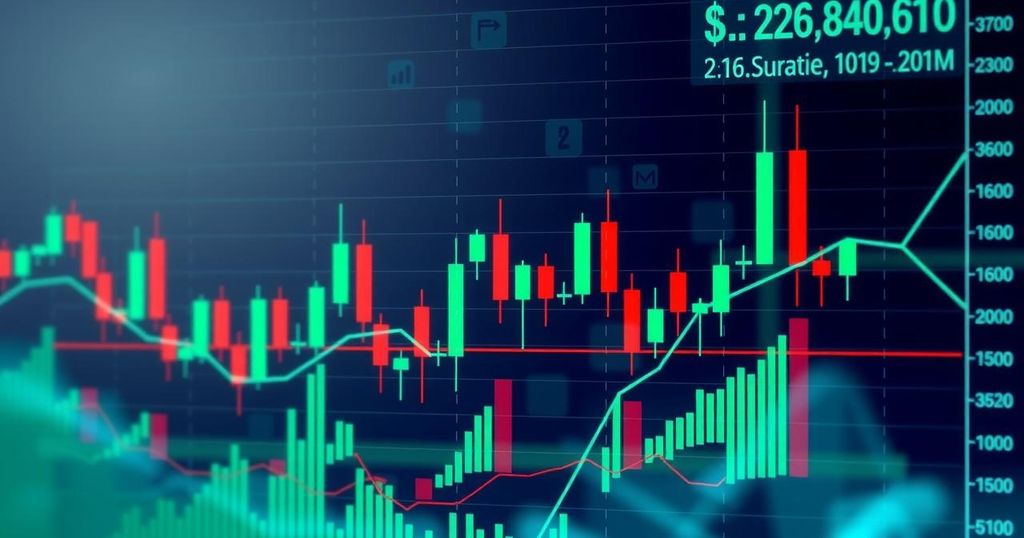Economy
Politics
ASIA, BEIJING, CHINA, DIGITAL ECONOMY, DONALD TRUMP, ECONOMY, EXPORTS, INDIA, INTELLIGENCE COMMUNITY, KAILASH MANASAROVAR YATRA, KUN, MINISTRY OF EXTERNAL AFFAIRS, NATIONAL PAYMENTS CORPORATION OF INDIA, NORTH AMERICA, NPCI, SUPPLY CHAIN, TRADE, TRUMP, U. S, UNITED STATES, WHITE HOUSE
Sophia Klein
Key Developments in India, U.S., and Global Affairs – March 27, 2025
This article reports on key global and domestic events from March 26, 2025, including the India-China dialogue focusing on rebuilding ties, U.S. tariffs on auto imports, significant digital transaction disruptions due to a UPI outage, a U.S. intelligence report linking India and China to drug trafficking, and protests in India regarding student rights. Additionally, it covers a significant IPL match, a defense of the Waqf Amendment Bill, the role of the Bangladesh Army Chief, a U.S. Defence Secretary’s text leak, the military’s advancement in Sudan, and calls for UN intervention in Bangladesh.
On March 26, 2025, India and China discussed rebuilding their ties during a meeting in Beijing. They agreed to promote people-to-people exchanges, which include resuming direct flights and the Kailash Manasarovar Yatra. The two nations aim to re-establish dialogue mechanisms gradually to better address priority areas and stabilize their bilateral relationship, according to the Ministry of External Affairs.
U.S. President Donald Trump announced a 25% tariff on auto imports on March 26, citing the initiative as a means to boost domestic manufacturing. While the White House contends this move will stimulate economic growth, it may also impose financial constraints on automakers reliant on global supply chains. “This will continue to spur growth,” Mr. Trump stated to journalists.
A significant UPI outage occurred on March 26, disrupting digital transactions as numerous users encountered difficulties with the instant payment interface. The National Payments Corporation of India (NPCI) worked to stabilize the system, which faced issues for about one hour, leading to a spike in complaints reported on Downdetector, a service monitoring outages.
According to a recent U.S. intelligence report, India and China are identified as key sources of precursors and equipment for drug trafficking, particularly fentanyl. Released on March 25, the 2025 Annual Threat Assessment noted that certain transnational criminal organizations are linking these countries to the production and distribution of illegal drugs, which are endangering lives in the United States.
Comedian Kunal Kamra publicly criticized T-Series on March 26 for blocking visibility of his controversial stand-up special “Naya Bharat” on YouTube. The video faced copyright violation claims, which hinder its visibility and revenue generation. Mr. Kamra shared a screenshot on X, highlighting the issue and escalating the discourse regarding content censorship.
In a significant IPL match, Rajasthan Royals faced a defeat against Kolkata Knight Riders, led by Quinton de Kock’s exceptional innings of 97. Rajasthan had a promising start but could only manage 151 runs, while KKR comfortably chased down the target, winning by eight wickets with fifteen balls remaining at the Barsapara Cricket Stadium.
Over 350 activists and students protested outside the Tata Institute of Social Sciences in Mumbai on March 26 against the suspension of Dalit PhD student Ramdas P.S. The demonstration arose following a Bombay High Court dismissal of his plea that challenged his suspension from the institute for alleged misconduct and anti-national activities.
Kausar Jahan, Chairperson of the Delhi Haj Committee, defended the Waqf Amendment Bill, 2024, emphasizing its goal of enhancing transparency and accountability within Waqf Boards. She remarked that some critics misinterpret the bill’s intent, asserting that accountability is essential for fulfilling the original aims of the Waqf Board.
During a briefing on March 26, Foreign Secretary Vikram Misri informed Members of Parliament about the vital role of the Bangladesh Army Chief in sustaining stability within the nation. He raised concerns regarding the influence of disruptive factions and the interim government’s release of Islamist extremists, which poses threats to both regional and global security.
U.S. Defence Secretary Pete Hegseth was implicated in a recent report detailing that he texted the timing for a targeted killing of a Houthi militant in Yemen. This revelation emerged from a chat screenshot provided by The Atlantic on March 26. The Trump administration claimed that no classified information was leaked, despite scrutiny from Democrats and former officials about the significance of such targeting details.
Sudanese forces have successfully retaken a key camp from the Rapid Support Forces paramilitary group in Khartoum as of March 26, asserting control over the capital. This strategic recapture marks a vital step towards declaring Khartoum liberated, as the military moves closer to maintaining authority over essential areas, including the airport.
The Rights and Risks Analysis Group has urged the United Nations to intervene regarding Mohammed Yunus’s actions, which allegedly marginalize religious minorities in Bangladesh. The group accused Mr. Yunus of downplaying violence against Hindus, Buddhists, and Christians, attributing such incidents to personal disputes rather than recognizing them as systemic issues.
In summary, recent events highlight significant geopolitical and social dynamics involving India, the U.S., and Bangladesh alongside domestic issues in India. The discussions between India and China indicate efforts toward stabilization, while U.S. policy changes and intelligence assessments underscore complex international relations. Additionally, the domestic unrest in India over perceived injustices reflects ongoing societal challenges. These developments warrant attention as they shape future engagements both regionally and globally.
Original Source: www.thehindu.com








Post Comment